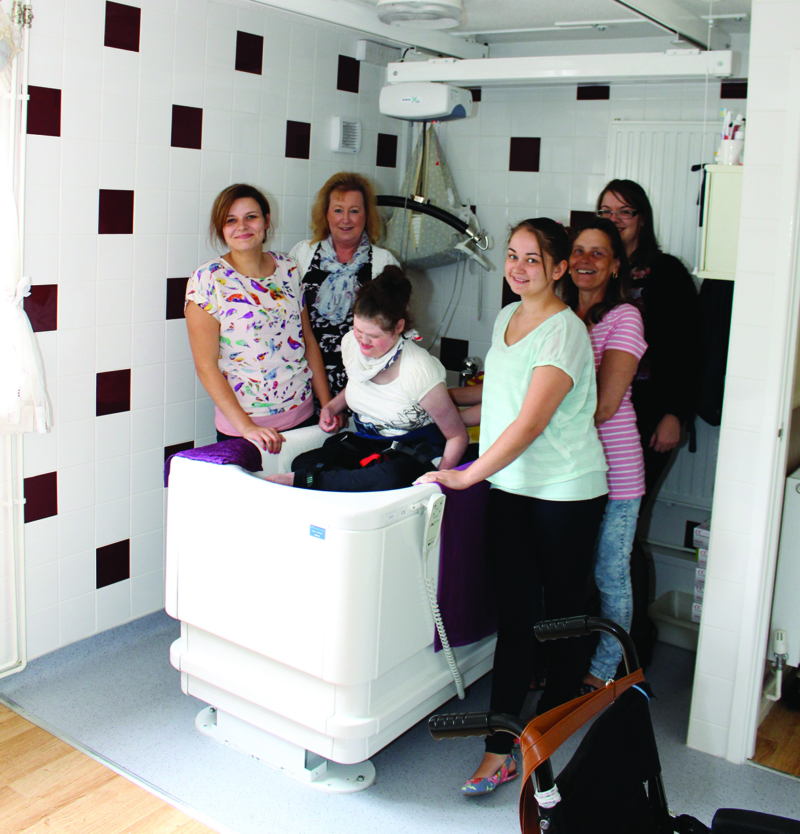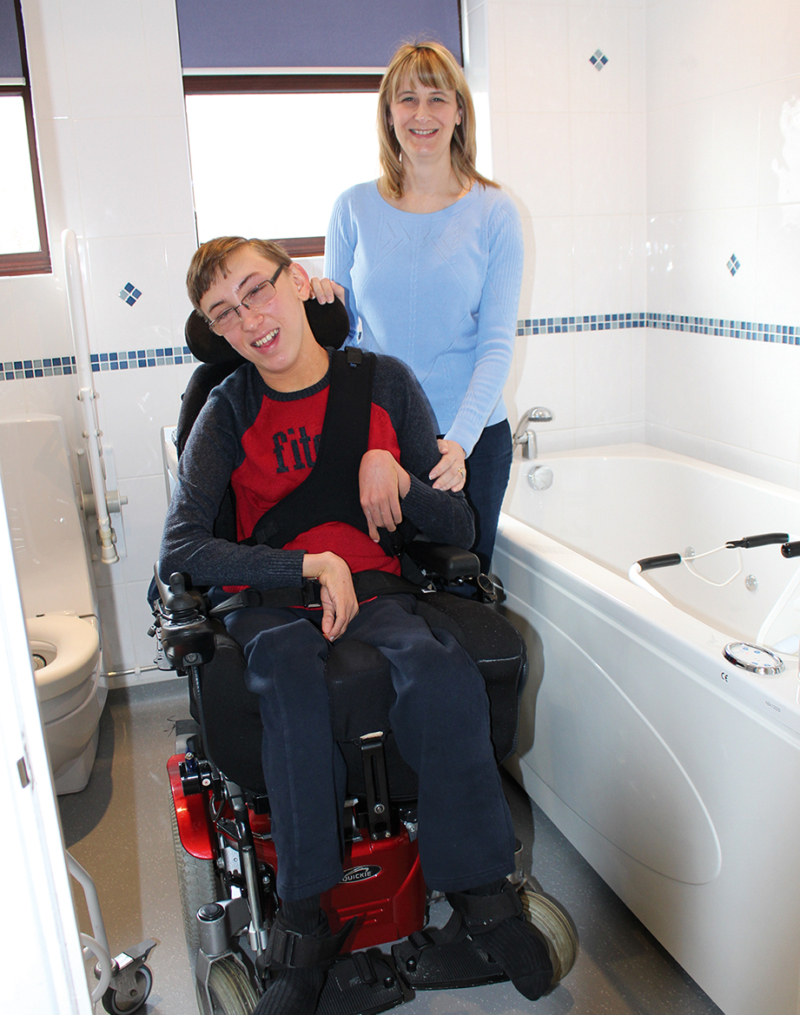Occupational Justice – choice and dignity
Occupational Science
As occupational therapists we believe individuals have occupational rights and that everyone has the right to engage in meaningful occupations that contribute positively to their own well-being (Hammell, 2008). Equally adopting a client-centred approach assumes advocating for people to engage in meaningful occupations that improve their health and well-being.

The World Federation of Occupational Therapists (2016) reminds us that occupational rights are the actualisation of human rights and that as occupational therapists we are obligated to,
‘Protect people’s occupational rights to participate in a health-giving range of occupations, choose occupations that are meaningful to them, and freely engage in necessary and chosen occupations is the foundation of just and inclusive societies.’
This fits closely with occupational science and the study of occupation including understanding the complexity and experience of occupations (Yerxa, 1989). Thus, as occupational therapists we understand occupations encompass a diversity of actions carried out in a given context, that occupations develop and evolve over a person’s lifetime and are unique to each individual, and family.
For example, bathing can be an occupation in itself, such as ensuring a person can get in and out of the bath safely or part of another occupation such as getting ready for school, work or bed. As a child bath time might be associated with fun and play or maybe fear and sensory overload related to water sensations, sounds and scents. For some it is part of a self-care activity, a bedtime and sleep routine, relaxation, or a mixture of all three. Some may bathe every day for others it may be less frequent care of physical, emotional, or cognitive limitations whilst others view bathing as a luxury. Understanding this complexity is part of our occupational analysis and clinical reasoning.

Clinical reasoning in context
Our clinical reasoning comes from talking with clients, listening to and respecting their needs and wants, alongside processing the information in relation to knowledge and evidence, including both evidenced informed and evidence-based practice.
Mattingly and Fleming (1994) describe different forms of clinical reasoning and if we look at some of these in relation to bathing it starts to give us an understanding of the clients’ unique perspective.
- Narrative: Understanding the clients’ story and wider context – what does bathing mean to the client, parent, carer and/or family? How does bathing fit into the client’s and family’s daily story?
- Interactive reasoning: Listening to the client and understanding the feelings they have about themselves and the interventions they are receiving. How do they feel about the bathing options being discussed; the possibility of not being offered a bath in an adapted bathroom; the choice of equipment on offer to assist with bathing?
Very often interactive reasoning resonates with occupational justice.
Occupational Justice
Occupational justice is,
“The right of every individual to be able to meet basic needs and to have equal opportunities and life chances to reach toward her or his potential” (Wilcock & Townsend, 2000).
The concept is often linked to wider socio-economic and political situations such as the daily living circumstances and opportunities for refugees and displaced persons however, if we take the premise that if society is to be occupationally just it must enable all people to have the resources to engage in occupations that they need and want to do, this includes consideration of disability, socio-cultural position, geographical location, age or gender (Townsend and Wilcock, 2004). Therefore, the outcomes of occupational justice including meaning, participation, choice, and balance (Townsend and Polatajko, 2013) are important concepts for all occupational therapy interventions including discussions and considerations about bathing and by not enabling occupational justice we may in fact be encouraging occupational injustice.

Occupational injustice
The absence of occupational justice is occupational injustice and can have many impacts on a person’s human rights. Let’s take the example of someone unable to enjoy bathing as a meaningful and enriching activity such as for relaxation, it could be argued that this is an example of occupational alienation, occupational deprivation, or occupational marginalisation.
Occupational alienation is when someone is disconnected from a purposeful activity and experiences limited expression of self or does not receive the support required to engage in a chosen occupation. This can be seen through inadequate bathing adaptations that don’t consider the true meaning of the bathing activity for the individual and family and perhaps bathing then becomes a must rather than a meaningful activity. For example, adaptions and equipment may allow the client to physically bathe yet not provide a conducive emotional environment for the client to enjoy.
Equally occupational deprivation, whereby someone is excluded from bathing due to external factors such as the environment and inaccessible facilities, is experienced when there are inadequate or lack of bathroom adaptations.
This exclusion from participation in valued occupations due to environmental and/or emotional factors can then lead to occupational marginalisation. For example, when bathing is considered in its full context for example cleanliness to enable social participation, and whereby the absence of an assistive bath and/or lack of suitable bathing equipment can be seen as denying a person’s access to their community.
Choice and Dignity
It is essential that as occupational therapists that we always consider the full implications of a person’s required and chosen occupations, considering physical, cognitive, and emotional aspects. To ensure occupational justice we should question funding, authorities and processes that prioritise showering over bathing or vice versa, without fully understanding the person or family and what bathing means to them. In doing so we respect a person’s human rights, their rights to equality, choice, and dignity.
As occupational therapists we can ensure clients have choice not just through advocacy but by being knowledgeable and up to date with regards equipment and adaptations that are available on the market. Learning about the possibilities and uses of bathing equipment and the availability of different types of assistive baths combined with our clinical knowledge of physical and mental health can help inform clients and enable them to make suitable choices for their present and future needs.
By continually challenging discrimination, empowering our clients by increasing opportunities and choice and considering dignity alongside participation we enable occupational justice.
References
Hammell, K.W. (2008). “Reflections on … Well-Being and Occupational Rights”. Canadian Journal of Occupational Therapy. 75(1):61-64. Doi:10.2182/cjot.07.007 (Accessed 29th June 2021).
Mattingly, C., & Fleming, M.H. (1994). Clinical Reasoning: Forms of Inquiry in a Therapeutic Practice. Philadelphia, PA: F.A. Davis.
Townsend, E. & Polatajko, H. (2013). Enabling occupation II: Advancing an occupational therapy vision for health, well-being, & justice through occupations (2nd ed.). Ottawa: CAOT Publications ACE.
Townsend, E., & Wilcock, A. (2004). “Occupational Justice and Client-Centred Practice: A Dialogue in Progress.” Canadian Journal of Occupational Therapy. 71. 75-87. Doi:10.1177/000841740407100203 (accessed 29th June 2021).
Wilcock, A., & Townsend, E. (2000). “Occupational terminology interactive dialogue: occupational justice.” Journal of Occupational Science, 7(2), 84–86.
World Federation of Occupational Therapists (WFOT). (2016). Position Statement on Human Rights (revised 2016).WFOT. Available at: www.wfot.org (Accessed 29th June 2021).
Yerxa, E. (1989). “An introduction to occupational science: A foundation for occupational therapy in the 21st century”. In: Johnson, J, Yerxa, E, eds. Occupational science: The foundations for new models of practice. New York: Howarth.

